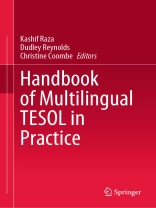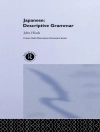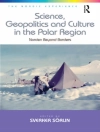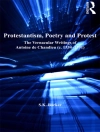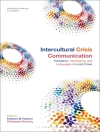This book presents exemplars of multilingualism in TESOL worldwide. It incorporates essential topics such as curriculum development, classroom instruction, materials creation, assessment, and teacher training where TESOL and multilingualism co-exist and co-develop. The wide-ranging and international collection of chapters is written by leading researchers in multilingualism and TESOL from around the world. This handbook provides unique insights into a range of practical approaches to promote local, indigenous and national languages in English language classrooms across a range of instructional programs in various geographical contexts. The book is divided into six sections. Part 1 presents curricular and principle-based approaches to multilingual TESOL in ESL/EFL classes. Part 2 includes chapters that showcase how diverse teachers bring multilingual TESOL to their classrooms. Part 3 discusses the challenges of teaching multilingual TESOL and how educators address them in their contexts. Part 4 provides activities and materials to support local languages in TESOL classrooms. Part 5 addresses assessment issues in multilingual TESOL. Part 6 includes initiatives and examples to prepare TESOL teachers to promote multilingualism in ESL/EFL classrooms.
สารบัญ
Multilingual TESOL in Practice in Higher Education: Insights from EFL Classrooms at a Gulf University.- Culturally Sustaining Practices in a Culturally and Linguistically Diverse Preschool Classroom.- English in the Background: Developing an Indigenous Multilingualism in Hawai’i.-
Plurilingual Strategies for Teaching Pronunciation in TESOL: A Research-based and Action-oriented Approach.- “Bangla Helps Learners to Get the Gist Better” – Translanguaging in Post-Colonial English as a Foreign Language Classes in Higher Education in Bangladesh from Teachers’ Perspective.- Promoting Multilingualism at University Writing Centers: International Students’ Perceptions of Working with Nonnative English-Speaking Writing Tutors.- Critical Multilingualism TESOL in Practice: Language, Power and Decoloniality.- Using Translingual Interactions During Collaborative Revisions of Argumentative Essays to Develop ESL Morpho-Syntactic Abilities: A Study of Adult Indian Learners.- Translanguaging in the Young Learner EFL Classroom in Turkey.- Multilingualism in Global Englishes Language Teaching classroom: Narrative Insights from 3 TESOL Practitioners in Japan.- Teaching English to Linguistically Diverse Students: Multicultural Pedagogy in Practice.- Multilingual Teaching of English Language in Higher Education in Bangladesh: A Critical Perspective.- Caught between a Bilingual Policy and Monolingual English Practices in Chile: Opportunities and Challenges of Translanguaging as Voiced by TESOL Teachers and Students.- Pakistani English Language Teachers’ Beliefs About Mother-Tongue Based Multilingual Education Policy: Findings from the Government Primary Schools of Balochistan.
เกี่ยวกับผู้แต่ง
Kashif Raza is a sessional instructor and a Ph D Candidate at Werklund School of Education, University of Calgary, Canada, specializing in Leadership, Policy and Governance. As a multilingual speaker of Urdu, Punjabi, English, Arabic and Persian, and with an academic background in ELT and law, he has been involved in teaching, leadership, EAP and ESP law courses development, and English education policies enactment and implementation at department, college and university levels. His research interests include language policy and planning, higher education law, TESOL leadership, teacher development, social justice, and immigrant integration. His most recent publication was a co-edited volume entitled
Policy Development in TESOL and Multilingualism: Past, Present and the Way Forward (2021, Springer). Kashif also serves as the Co-Chair Elect of Program Administration Intersection of TESOL International Association.
Dudley Reynolds is a teaching professor of English at Carnegie Mellon University in Qatar. He served as the president of TESOL International Association in 2016–2017 and has been a teacher and researcher of multilingual language learners for over 30 years, working primarily with learners of English. His research addresses issues in language education policy, developmental patterns in additional language learning, curricular and pedagogical approaches to literacy development, teacher education and learning. Among his recent publications is a report on
Language Policy in Globalized Contexts for the World Innovation Summit for Education (wise-qatar.org). He is the 2023 recipient of TESOL’s James E. Alatis award.
Christine Coombe has a Ph.D. in Foreign/Second Language Education from The Ohio State University. She is currently an associate professor of General Studies at Dubai Men’s College in the UAE. She is a co-editor and co-author of numerous volumes on F/SL assessment, research, leadership, teacher evaluation and TBLT. Her most recent publications are the
Professionalizing Your English Language Teaching (2000, Springer),
Policy Development in TESOL and Multilingualism: Past, Present and the Way Forward (2021, Springer),
Research Questions in TESOL and Applied Linguistics (2022, Springer) and
English Language Teaching in Pakistan (2022, Springer). She served as the president of the TESOL International Association (2011–2012) and in 2017 was named to TESOL’s 50@50 which “recognizes professionals who have made significant contributions to the TESOL profession within the past 50 years.” She is the 2018 recipient of the James E. Alatis Award which recognizes exemplary service to TESOL.
